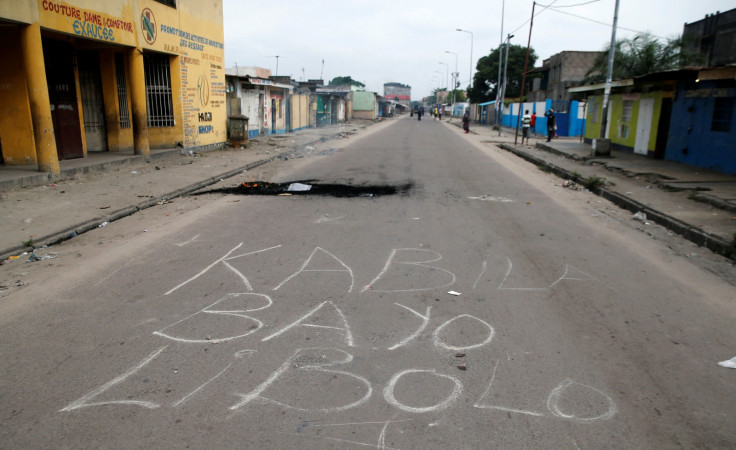US State Department urges DRC leaders to refrain from actions 'that could incite violence or unrest'
US 'concerned' after breakdown of talks between President Joseph Kabila's allies and the opposition.

The US has expressed concerns after the breakdown of talks in the Democratic Republic of Congo (DRC) between President Joseph Kabila's allies and the opposition which were held to ensure the country could finally move towards its first peaceful, democratic transfer of power.
The political dialogue was expected to pave the way for the signing of a special arrangement that would have allowed for the implementation of the 31 December power-sharing deal, facilitated by Congolese bishops (Cenco) leading to a new unity government.
But on 28 March, Cenco pulled out of its mediation role after voicing frustration at Kabila and coalition platform Le Rassemblement (Rally)'s unwillingness to seek compromise, effectively sparking sporadic unrest in the capital, Kinshasa.
Police fired tear gas and bullets to disperse opposition protesters.
The US State Department later on 28 March said it was "disappointed by lack of progress in implementation" of the political accord.
"The US (...) is concerned by the inability of both the Government of the DRC and the leaders of the opposition Rassemblement coalition to make the compromises necessary to enact pre-agreed provisions of the agreement, including the appointment of a prime minister," US State Department spokesman Mark C Toner said.
Kabila, who was supposed to step down by December last year, is due to address parliament later today (29 March) following the breakdown of the latest round of negotiations.
Toner said the US commended the "tireless efforts" of the Cenco in mediating the initiative, supported a continuing role for Cenco in the process and seconded the bishops' appeal for both sides to redouble efforts to overcome points of disagreement.
The State Department, which also warned that "failure to move ahead with the accord clearly thwarts the will of the Congolese people and jeopardises the progress achieved thus far", urged government and opposition leaders to refrain from any statements or actions "that could incite violence or unrest".
There are fears that armed groups may be trying to capitalise on the prevailing political uncertainty to cause widespread violence and instability in an already fragile country.
Already, the International Federation for Human Rights (FIDH) says it has documented an intensification of violence and violations committed by different armed groups and has condemned the ongoing crackdown by security forces since the summer of 2016.
FIDH on 27 March raised fears of widespread conflagration as the country heads to planned presidential, legislative and provincial elections by December.
The US was the DRC's largest donor in 2016, having committed, or contributed more than $143m (£115m) by October 2016 – 35% of the total of humanitarian assistance to DRC over the period.
© Copyright IBTimes 2024. All rights reserved.






